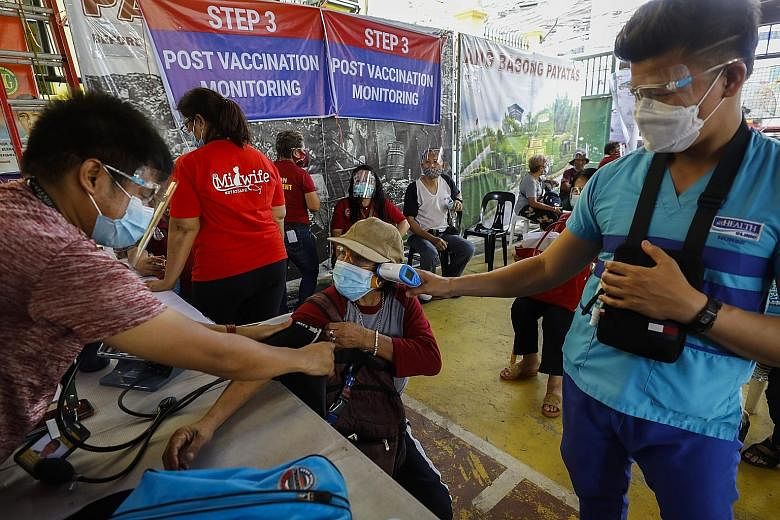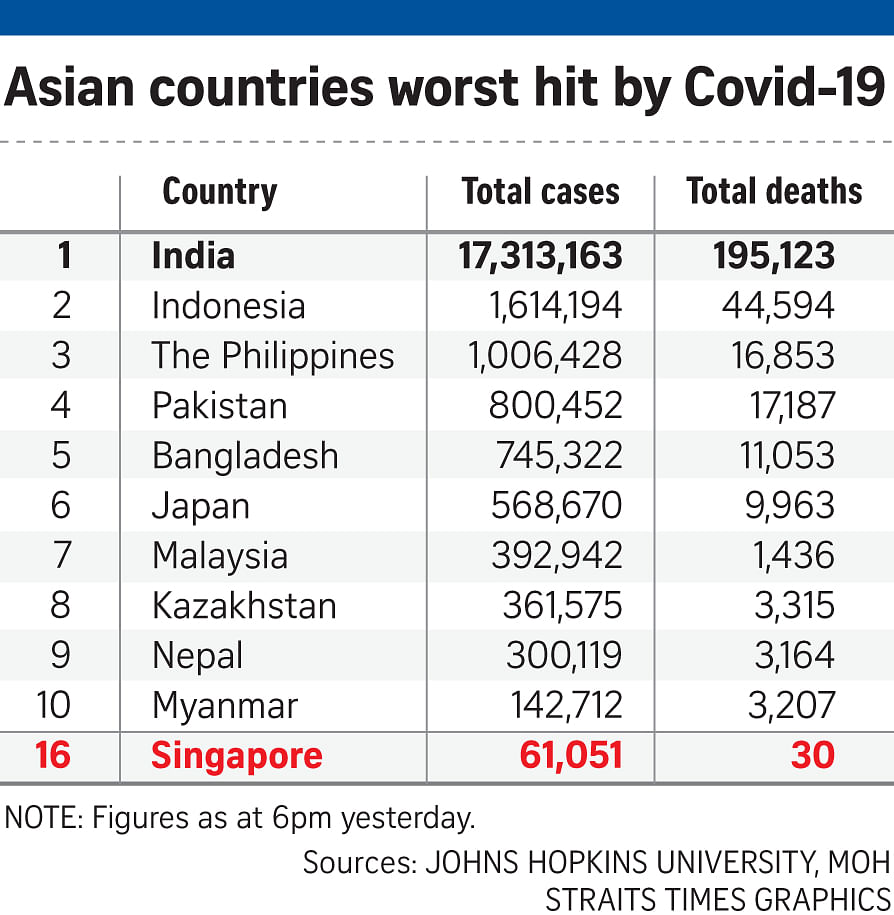The Philippines has chalked up more than a million Covid-19 infections, hitting a new grim milestone as it debates whether to keep quarantine restrictions in place to hold on to recent gains against the pandemic or reopen the economy further to stem massive job and corporate losses.
There were close to 9,000 new cases reported yesterday, bringing the nation's total to 1,006,428. Nearly 17,000 people have died.
The Philippines is the second worst hit country in South-east Asia after Indonesia, which has over 1.6 million Covid-19 cases.
Data crunchers said the number of cases in Metro Manila, where nearly half the infections were recorded, was going down amid the strict restrictions under the quarantine in place since mid-March.
But they warned that it was still too early to open up the economy even further.
"The trend is still unstable in that it has not been sustained over a long period yet," said Professor Guido David, a spokesman for the University of the Philippines-based Octa Research Group.
Health Secretary Francisco Duque agreed.
"If we look at the data, I think we need to extend MECQ (modified enhanced community quarantine) for another week or two because our health system capacity has yet to significantly improve. The intensive care unit capacity in several cities is still at critical risk classification," he said in a radio interview.
The Philippines placed Metro Manila and four nearby provinces - home to a quarter of the nation's population - in strict lockdown from March 29 to April 10, as its efforts to contain fast-spreading variants of the coronavirus floundered.
At 10,000 to 15,000 new cases a day, the country was seeing twice as many infections as it did when the pandemic peaked in August last year.
Hospitals were so inundated with patients that many died of Covid-19 even before being wheeled into an emergency room. Some died inside tents set up at hospital carparks. At least one died while trying to self-quarantine inside his car.
Curbs were relaxed slightly on April 11 under the MECQ set-up. Government officials and health experts are now debating whether to keep the current restrictions or ease them further after April 30.
President Rodrigo Duterte is expected to announce his decision tomorrow.
Octa Research said in its latest report that the reproduction rate of the coronavirus has fallen below 1, a level that means the virus' spread has been contained.
Infections slid by 20 per cent last week, and average daily cases by 30 per cent, it said.
It added that the proportion of those carrying the virus against the number of people being tested has gone down to 19 per cent, from close to 25 per cent earlier.
There are also now more hospital beds available, though still not enough to unclog the health system, it said.
"Whatever we are doing right now has to be doubled. We are not saying the system is perfect, but we are doing our best to protect public health, to expand the health system capacity and for us to manage this public health emergency," Health Undersecretary Rosario Vergeire told reporters.
Mr Duterte is likely to heed the recommendation of a council of mayors of cities in Metro Manila.
For now, the mayors have not yet reached a decision.
"The cases have gone down, but the number of infections is still critical," said Mr Marcelino Teodoro, the mayor of Marikina city.
New York-based think-tank Global Source told the Philippine Daily Inquirer that if the trend holds, the government is likely to again prioritise reopening the economy.
"As it is, the Trade Department estimated that the economy lost the equivalent of 1 per cent of GDP (gross domestic product) due to the two-week (lockdown), and analysts are starting to downgrade GDP growth outlooks," according to a report written by former finance undersecretary Romeo Bernardo for Global Source.
Economic managers have also estimated that workers lost some 70 billion pesos (S$1.9 billion) in wages because of the lockdown.


